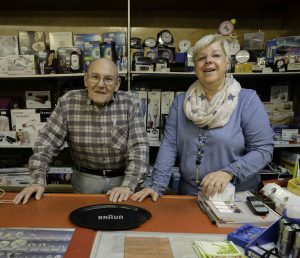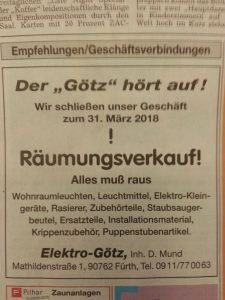Here are the two texts I am about to discuss:
Original German judgment of Frankfurt am Main Regional Court
English translation of the judgment
Here is an IPKAT post on the case.
I apologize in advance if I seem to be nitpicking in the following, since the translation is excellent and reads very well in English, although the latter is not a 100% requirement in legal translation. I assume the translation was commissioned by the Cologne law firm Wilde Beuger Solmecke, who represented both Project Gutenberg and its managing director and CEO Dr. Gregory Newby.
A commenter on my earlier post is interested in a discussion of the US English aspects of this translation. I had not thought about that. It is very similar to a British English text. However, I suppose that people might be interested on what strikes me, so I will report on that at the end.
The following are just a few remarks out of many that could be made!
Use of reported speech
Anyone translating a German judgment into English must make it clear when a statement is direct speech (the words of the court) and when it is indirect speech (the submissions of the parties). This translation does that very well.
An example: in the section of the judgment setting out the facts of the case, the words of the parties often have to be summarized, and it must be made clear in German and English that these are what the parties state.
p. 7 Die Beklagten behaupten, dass die Beklagte zu 1) keine Kenntnis von der Nationalität ihrer Nutzer habe.
Tr: The defendants claim that the first defendant has no knowledge of the nationality of its users.
No problem here.
p. 8 Die Beklagten seien nicht zum Schadensersatz verpflichtet, da sie weder vorsätzlich noch fahrlässig gehandelt hätten.
Tr. The defendants claim they are not liable for damages as their actions were neither willful nor grossly negligent.
Here it was necessary to make it clear that this was a party’s statement, and also which party stated it.
This may seem elementary, but it is something that inexperienced translators often overlook. It also surprises me that native speakers of German who translate into English (quite common not only in Germany but in the USA, where Germans may have lived so long that they feel more comfortable with English than with German) do not always realize that this is reported speech: they learnt it from hearing it, rather than from being taught the grammar.
�There are various ways of indicating reported speech. One possiblity is to write ‘The defendants submitted as follows” and then make it clear typographically that several paragraphs are the defendants’ statements. I don’t myself use ‘allege’ or ‘allegedly’, unlike the translator here, because I find it suggests that there was something suspicious about the statement – here is an example:
Die Handlungen der Freiwilligen könnten den Beklagten nicht zugerechnet werden.
The actions of the volunteers can allegedly not be attributed to the defendants.
I would rather know who ‘alleges’ this, although it is probably clear from the rest of the paragraph.
Translating court names
Landgericht Frankfurt am Main
District Court of Frankfurt am Main
I prefer Frankfurt am Main Regional Court (recommended by German authorities).
District Court: this is unclear – does it mean Landgericht or Amtsgericht? On page 10 (and elsewhere) reference to a decision by ‚Regional Court of Hamburg‘.
Germanisms?
…hat das Landgericht Frankfurt am Main – 3. Zivilkkammer –
durch Vorsitzenden Richter am Landgericht Dr. Kurth,..
… the District Court of Frankfurt am Main – 3rd Civil Division –
through Dr. Kurth, Presiding Judge at the District Court
Through?
I would say the court is ‚sitting with (judges)‘ or ‚composed of‘…
IV Von den Kosten des Rechtsstreits haben die Beklagten jeweils die Hälfte zu tragen.
The defendants shall pay half of the costs of the proceedings respectively.
The defendants shall bear half of the costs of the proceedings each.
What I would do differently
Bezug wird genommen
reference shall be made
Me: Reference is made
Es wird festgestellt, dass die Beklagten als Gesamtschuldner verpflichtet sind, der Klägerin Schadenersatz zu leisten…
The court finds that the defendants, as the joint and several debtors, are obligated to pay damages to the plaintiff
Me: The court finds that the defendants are liable as joint and several debtors to pay damages to the plaintiff
nach §32 ZPO
pursuant to §32 ZPO (German Rules of Civil Procedure)
Me: under section 32 of the Code of Civil Procedure (Zivilprozessordnung)
§ 97 Abs. 1 UrhG
§ 97 sec. 1 UrhG
Me: section 97 (1) Copyright Act
I would not translate Rechtsanwälte as attorneys-at-law, but just as attorneys. The former sounds too much like part of the common-law system.
I would not use authorized proxy for Prozessbevollmächtigte – I would reserve proxy for someone representing another at an AGM. Maybe attorney of record or counsel.
What makes this translation US English?
There aren’t many differences from British English here.
The usual: obligate (rather than oblige, which is less common in BrE than be under a duty)
not proven


